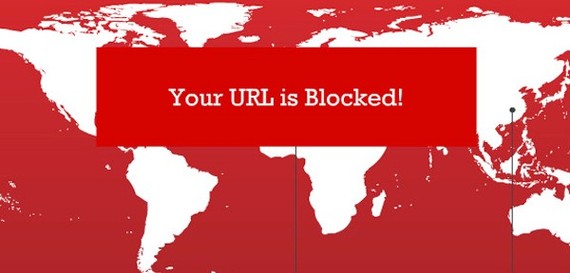Stomping over personal liberties and ruling by fear and forcefulness, the Communist Party of China has never been much about freedom of information. Using the media as a mere tool for furthering state agenda, it has always controlled and censored journalism in whichever way it saw fit. First it was newspapers, then the electronic media. But when the internet came along, everyone seemed to think that the Communist Party of China had finally met its greatest nemesis in terms of free distribution of information and opinion. After all, given the sheer vastitude of the world wide web, there was no way the Party could reign in this one. However, as is the very nature of China's communist regime, the Party surprised the world when it came up with one of the most elaborate and foolproof plans to censor the entire interweb and regulate what each Chinese citizen saw, read and shared over the internet, what is now known as the Great Firewall of China. However, while no one can question the sheer genius of China's electronic barrier, it is without a doubt that such an elaborate attempt to curb the freedom of speech and information can only end in disaster.
What can you do on the internet in China? Almost everything. Almost. You see, unlike countries like North Korea, where only 4% of the entire population have access to the internet, China popularizes the use of the internet for education and work purposes. As a result, infrastructure is good and access to the internet is easy. However, the Chinese version of the internet is a highly censored information prison which prevents citizens from gaining access to anything politically sensitive or otherwise against the interests of the Chinese government. As long as you err in the side of caution, you can do almost everything. If you want information, there are several popular local search engines like Baidu, Qihoo 360 Search and Sogou, as well as censored versions of Bing and Yahoo. Want to connect to your friends? Try Ren-ren, the Chinese version of Facebook, or Weibo, China's very own Twitter. If you want to just browse, mot websites and blogs are available for access, except the chosen few who dared voice their opinion against the internet. So as long as you don't look for anything politically sensitive, everything should be fine.
This brings us to the much bigger question, what can't you do with the internet in China. The answer is, a lot. Popular search engines like Google and DuckDuckGo are banned in the country, since they refused to remove politically sensitive information from their search results. Facebook, Twitter, Whatsapp, Youtube and Instagram are all forbidden. Even when you are on an approved search engine like Baidu, the search box is highly censored, and will refuse to display results for any sensitive terms like Falun Gong and Tiananmen Square. Further, popular news sources like BBC and the New York Times are banned. In fact, even news resources which are still accessible in China are highly dominated and must keep away from publishing anything sensitive to avoid losing access. File sharing websites like Dropbox are also banned.
Thankfully, not all Chinese citizens agree to live by the government's tyrannical impositions, and there are ways to bypass these restrictions if you so desire. The most common method to bypass internet censorship is to get a virtual private network (VPN), which allows you to gain unrestricted access to all websites blocked by the Chinese government. Extending a private network across a public network, a VPN makes it possible for users to send and receive data privately, with complete data encryption and unrestricted access to all corners of the internet. However, with public discord on the rise, the government is always taking stricter measures to prevent free access. Company owners who provide VPN services live under constant threat under the authorities, while bloggers and journalists who dare speak against the government are arrested and sentenced jail. Even individual users who express sensitive opinions are often threatened by officials, causing the entire country to live under constant fear of being charged. News companies and individual users are thus forced to self-censor their content in order to stay out of the authorities' bad books, fulfilling the government's uncanny schemes. However, as governmental suppression rises, so does individual intent to break free of these binds. More and more activists are always coming up with news ways to bypass the authoritarian wall, and sites like Greatfire.org are always looking for new methods to help users gain free access to the internet.
This is not the first time a powerful authoritarian force has tried to regulate the free tide of public opinion. We all know how it ended up last time. Let's see what happens next.

